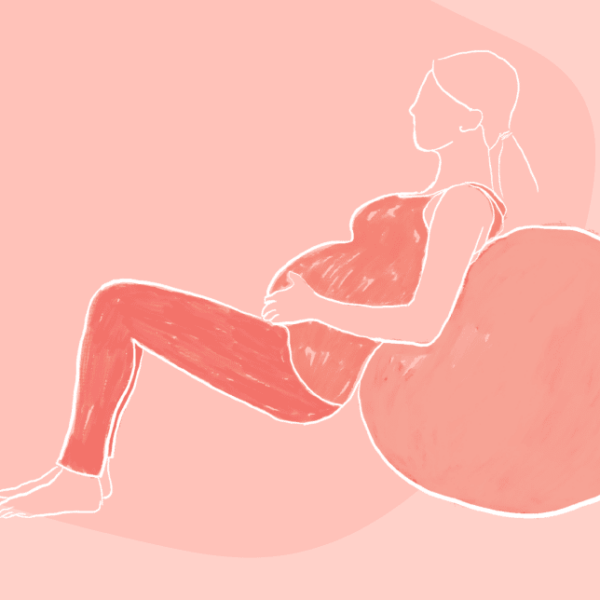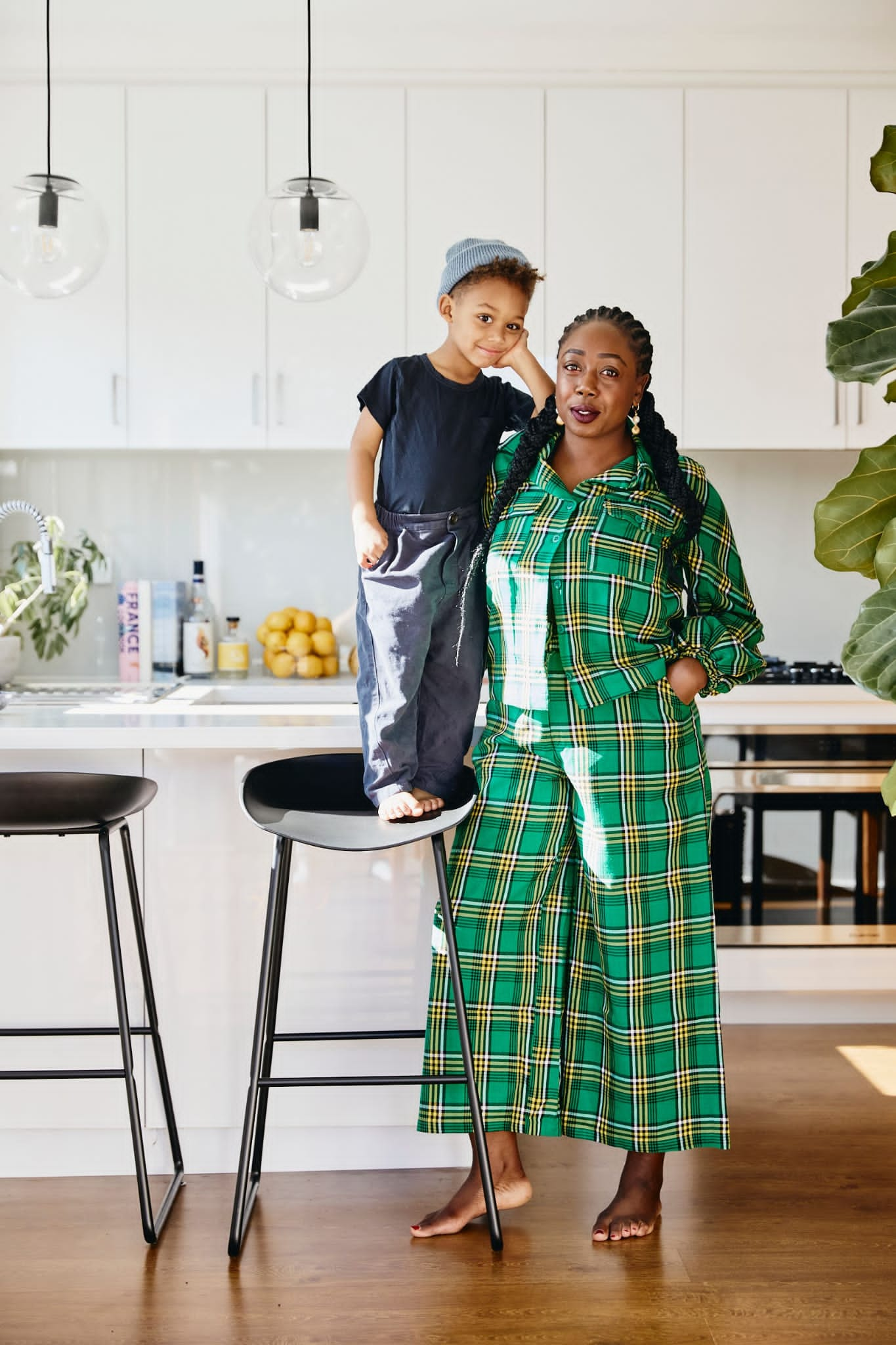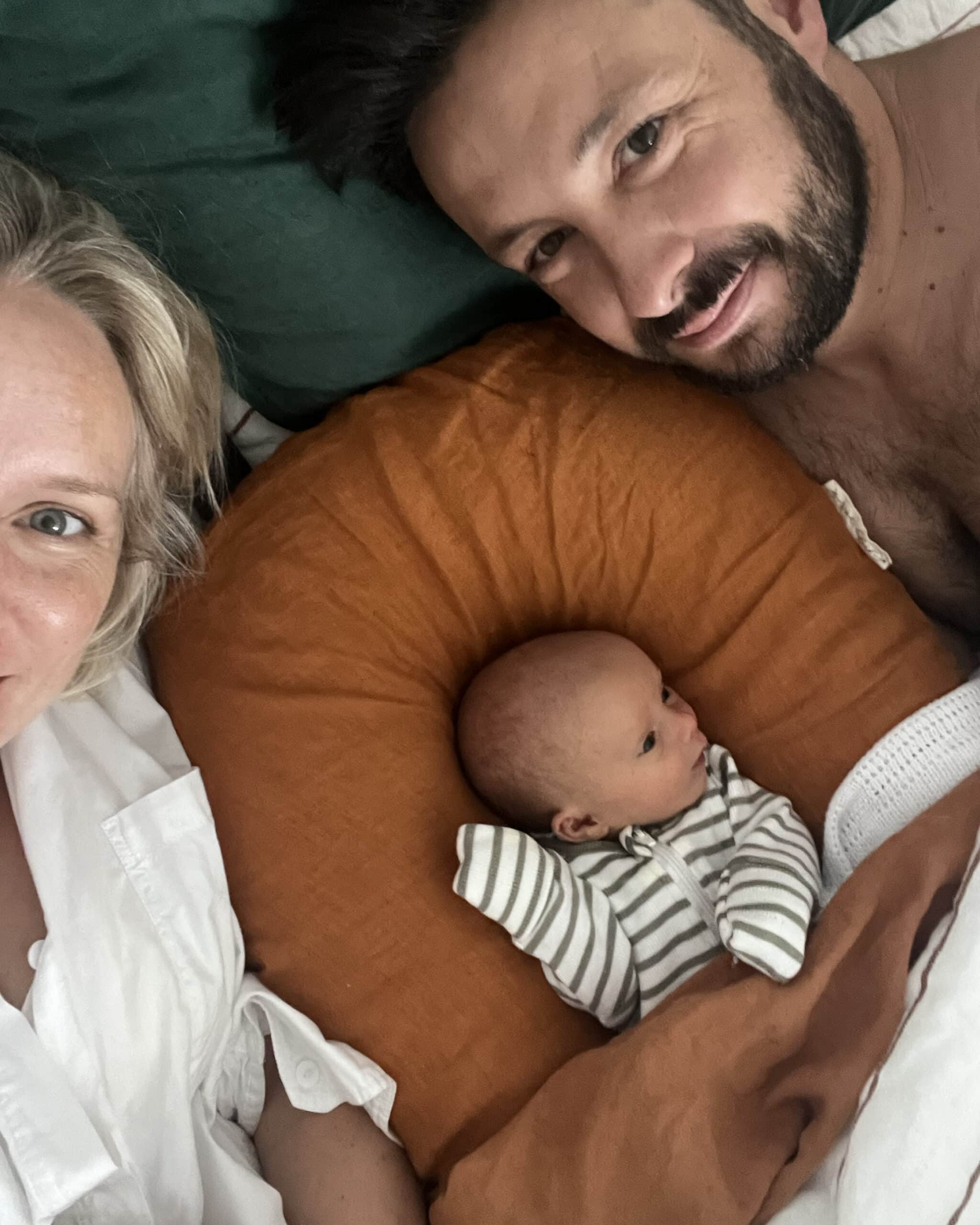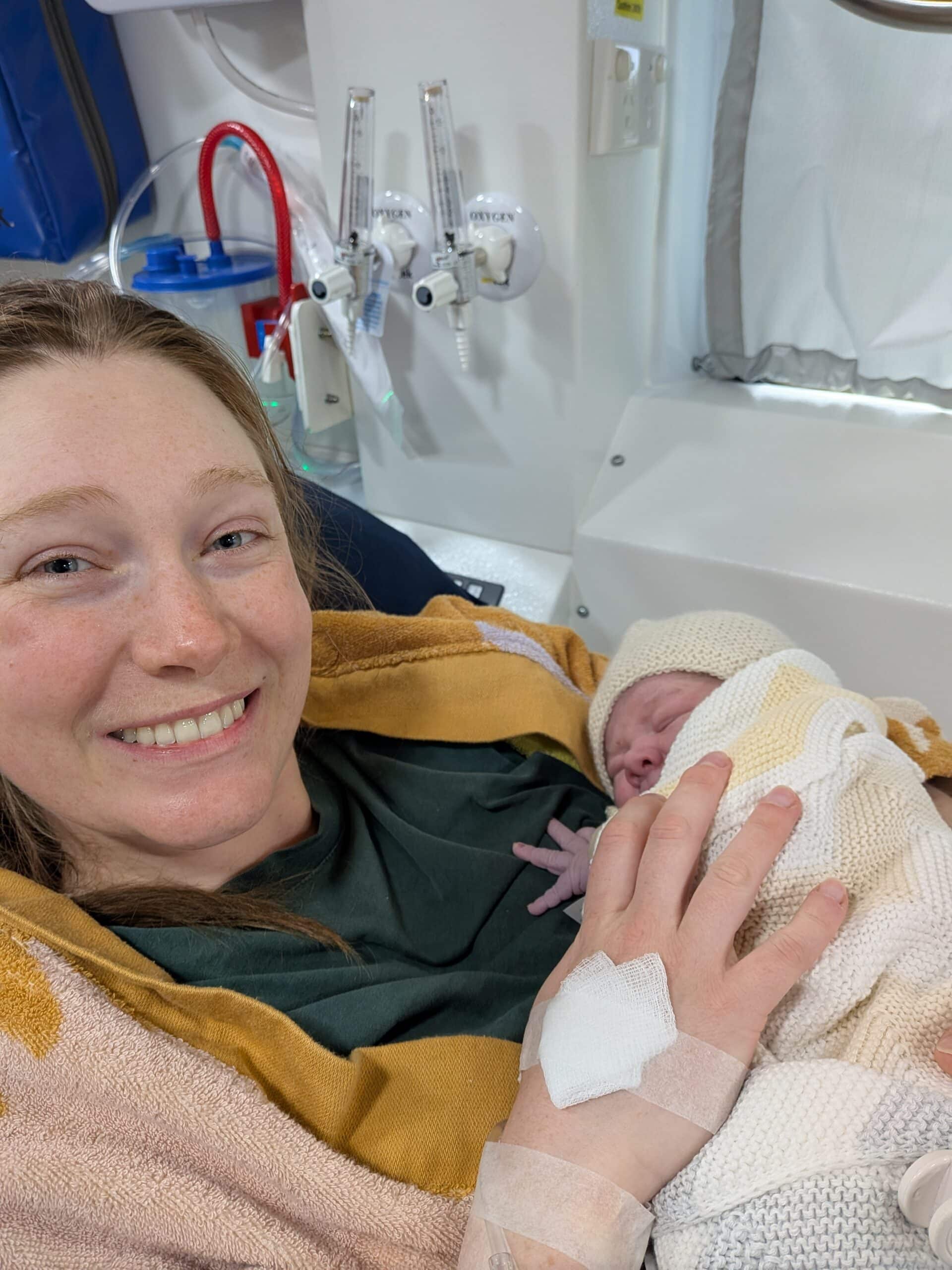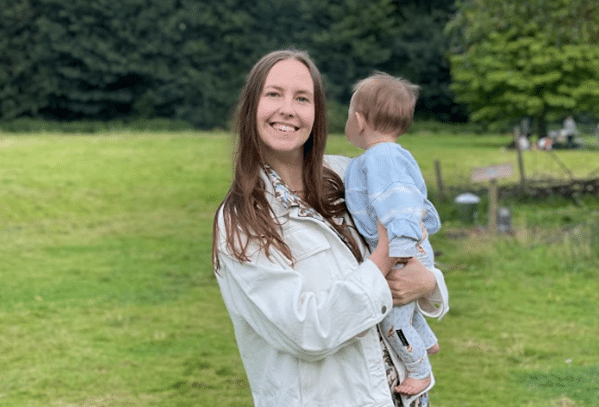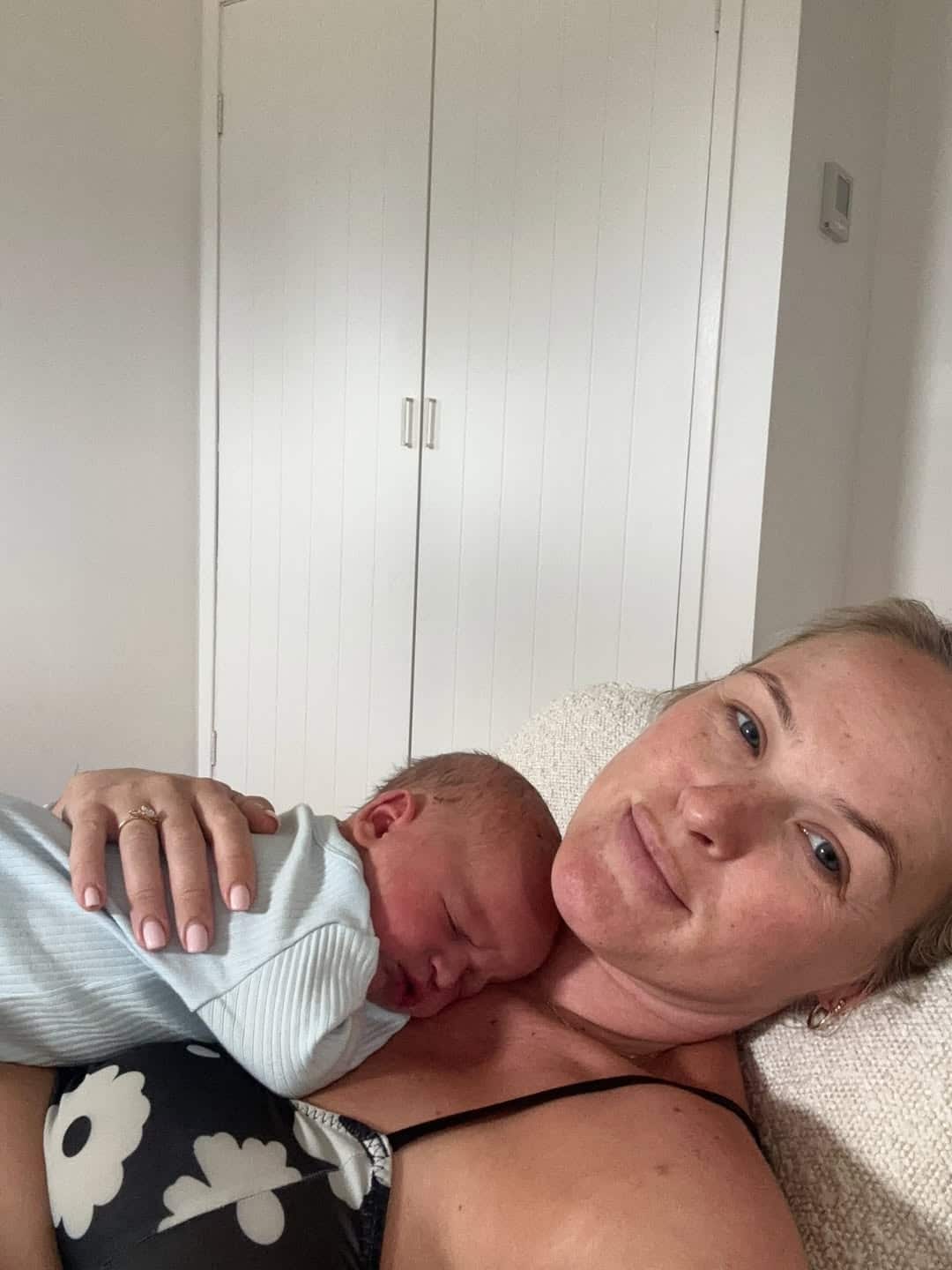Podcasts Ari
EPISODE 13
Ari
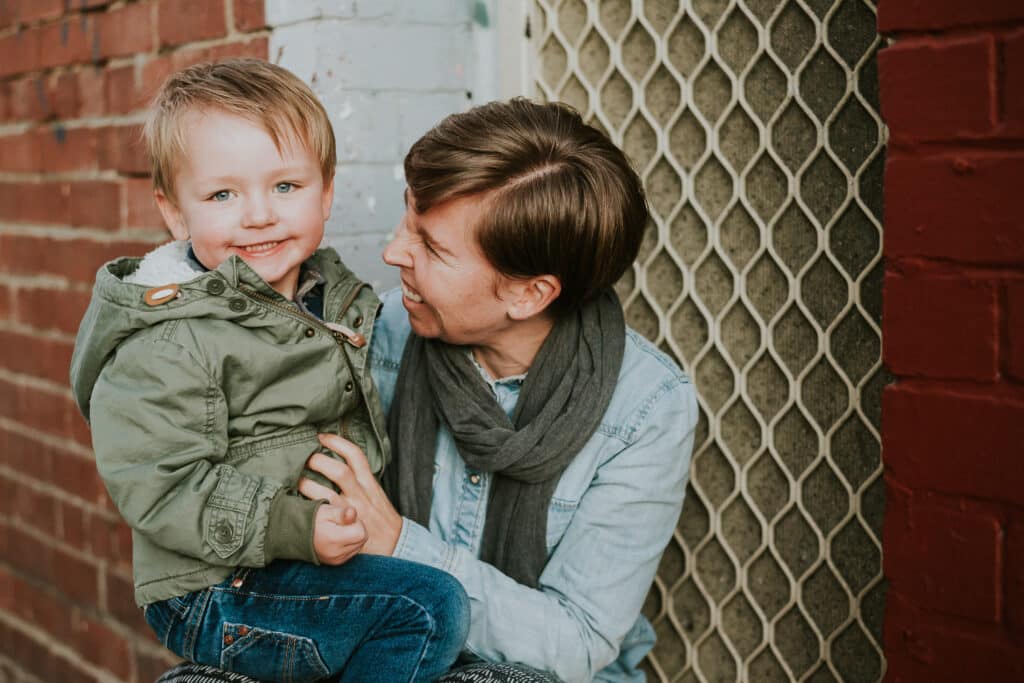
“Just prior to falling pregnant I started questioning whether I wanted children at all and then one morning I was sitting having my breakfast and realised that my period was late. I had a pregnancy test in the bathroom so I used it and it came up positive straight away. I did consider having a termination but we had been talking about having a child and we were in our early thirties and I felt like if I was going to have a baby, now was the best time.
I called the pregnancy helpline which is such a great resource and I told them I was having doubts about keeping the pregnancy. The counsellor encouraged me to go on the holiday my partner and I had planned and reiterated that if I still had doubts when I returned home, it wasn’t too late to terminate. I was six weeks when I started feeling nauseous and before long I was throwing up multiple times a day.
I think the effect of serious morning sickness on a woman’s mental health isn’t considered nearly enough; you’re just expected to get on with it when it actual fact, it’s torture. I lost 5kg, I barely gained any weight in my pregnancy and I was nauseous 24/7 right up until the day I gave birth. I definitely think that having such bad morning sickness was a contributing factor to my antenatal depression.
A lot of women who are diagnosed with antenatal or postnatal depression do have a family history of depression or anxiety or they’re familiar with it from past experience.. I had definitely had points in my life where I felt low and there were a few times when I was diagnosed and had regular therapy sessions. Looking back now, I don’t think I ever had clinical depression; it was nothing compared to what I experienced during pregnancy.
Up until 12 weeks I just put my low mood down to the fact that my pregnancy was a surprise; unplanned pregnancies are another trigger for antenatal depression. I just felt like it would pass after the first trimester, when I started to feel better and have more energy. I was waiting for that point so I could start getting excited but it never came. I was honest with my partner and it’s not as if I could hide it anyway; I was feeling so low and I was constantly teary.
At 14 weeks I sat my partner down and said to him I’m really struggling, I’m feeling like I don’t want to be pregnant, I just can’t cope. He got very upset, I don’t think I’d ever seen him cry up until that point but he cried. In Victoria it’s relatively easy to obtain a termination and at that point it was still on my mind but obviously the further along you are the more difficult it is. I did want one but I was scared and seeing my partner’s reaction convinced me that I would persist and I would get help.
At my 16 week appointment with my doctor I told her that I was feeling depressed and she referred me straight to the mental health unit at the Royal Women’s and I got an appointment there within a few days. I shudder to think what would have happened to me if I didn’t have access to the amazing psychiatric team there. I was assigned to a psychiatrist and I saw her throughout my pregnancy, four years on and I still see her. She was my rock during the lowest part of my life and I couldn’t imagine my life without her now. From that point on, at 16 weeks, I slid down a very deep hole of depression. Therapy kept me afloat but it didn’t stop the severity of my depression.
Because of the nature of antenatal depression I felt like I couldn’t discuss it. My partner, my mum and the team at the hospital were the only ones that knew. I was ashamed because people wanted to talk about the pregnancy but I was not excited and it was the last thing I wanted to talk about. Everything else in the pregnancy was going well and it was, in most regards, a very straightforward pregnancy. But there’s been so many tests to show that stress during pregnancy can affect the baby and Ari was basically in a cortisol bath; I was so stressed and that didn’t alleviate at all throughout the pregnancy. And then I became stressed about the stress affecting him. He’s four now and even though he is completely happy and healthy, occasionally I’ll come across a study on cortisol on unborn babies and feel awful guilt.
Until you have experienced antenatal depression, you just don’t know what it’s like. It’s a very common issue in pregnancy and the women who have it really need support because it is just so isolating. I’ve never felt as lonely as I did then. At the time it felt uncontrollable; I was completely overwhelmed. And I’m a middle-class woman with a supportive partner; I was being seen by a world class psychiatrist at a world class hospital and I could not dig myself out of the hole. It wasn’t a matter of changing my mindset or embracing positive affirmations or adding a quick meditation session into my day. It was a persistent overwhelm, every hour of every day. I would see my psychiatrist once a week and I lived for those sessions; towards the end of my pregnancy I saw her twice a week and she reminded me if I was ever completely overwhelmed, I could just go to emergency and they would admit me. It never got to that point but there were days when I didn’t trust myself. I felt like a failure that I couldn’t even handle being pregnant, I just felt worthless. I vividly remember, in the middle of my pregnancy, dreaming that I was laughing freely. And I woke up and cried all day because I couldn’t imagine laughing or being happy again.
Being depressed when you’re pregnant is a whole other level of terror. During pregnancy you get a lot of symptoms related to depression, your hormones are wild, you’re teary and tired. When you’re not mentally stable, all of those symptoms are amplified. I lived in a thick fog…eve getting out of bed to brush my teeth was really difficult. I almost disassociated; it was like I was watching myself from the outside of my body and it was awful. In the worse times I had thoughts of self harm or suicide. I didn’t describe myself as suicidal because I knew I wouldn’t go through with it but I definitely had thoughts of hurting myself.
As I got bigger I was reminded of what was happening and I felt like my life was out of control because I was headed in a direction that was just so unknown. Even when you’ve got stable mental health, being hurtled towards life with a newborn baby is difficult. There’s a point where you question whether you’ll be a good mother and when you’re not mentally well, you know that every day you’re getting closer to the inevitable; a challenging time of sleep deprivation and relationship pressure and that really affected me and contributed to an even further decline in my mental health.
At 28 weeks I started thinking about labour and birth. Prior to that it was a thought but not a concern. I came to the con
clusion and saying this is controversial, but I guess I felt like if I was left to go into spontaneous labour, there were any number of possible things that could go wrong with that and I felt that if labour and birth were traumatic or difficult in anyway, my resilience was so low at that point that any trauma would set me back and the newborn stage would be impossible. My psyche was a very thin pane of glass that was already splintered and I felt like the slightest tap was going to shatter that glass completely. The thought of picking up those pieces and putting them back together with a newborn baby felt absolutely impossible. Although an elective caesarean was not easy, for me it felt like the safest option. There were risks but they were confined. I brought it up with my psychiatrist and she supported me and advocated for me. I saw a senior obstetrician throughout my pregnancy so I had the consistency of care and my doctor was amazing, I never felt judged by her and she agreed that it was a positive option for me.
I started taking antidepressants at 30 weeks; I was resistant at first because I had taken them previously and I didn’t think they worked for me. You have to have a very, very good reason to have an elective caesarean in the public system. By 32 weeks I had a caesarean date – knowing how my baby was going to be born and knowing I didn’t have to worry about that, there weren’t any question marks and it definitely eased the last couple of weeks
In the week before my caesarean, I was still feeling very, very low. In the last week, I was feeling resigned to what was going to happen; I didn’t feel at peace or excited but I felt like it was happening and my psychiatrist had set a lot of support for my post-birth and that made me feel better.
I went into the hospital at 6 am, I was the second scheduled cesarean for the day. My psychiatrist saw me in the morning before the birth, she really went out of her way to make me feel supported. The hospital had also organised for me to have a familiar midwife which really did make so much difference. I had the epidural and they put the screen up and before long I could feel them pulling and tugging and I felt the release of pressure. Ari didn’t cry straight away and he had a low apgar score so they checked him out before they wrapped him up and put him on my chest. One of my greatest worries throughout my pregnancy was that I would hate and resent my baby and that I wouldn’t bond with him or be able to care for him. I looked down at him and while I didn’t feel overwhelming love I thought he was pretty cute and that was a relief.
After recovery I was wheeled into my private room which the hospital had arranged for me. I credit so much of my recovery to the hospital, they gave me all the support that they could. I felt better straight away, even that first day I felt better emotionally. I felt like I had gotten through the pregnancy. It felt like there was a chemical shift, alot of it was psychological but I definitely felt like pregnancy hormones and being pregnant didn’t agree with me. That night we got a few hours sleep and when I woke up the next morning I said to my partner; I feel like myself again and he cried from relief.
I was in the bed holding Ari when my psychiatrist came in and she sat on the edge of the bed and she said ‘how are you, how’s it going, how are you feeling?’ and I said to her: I think I love him. It was the defining moment of my life because I spent my pregnancy worried I wouldn’t love him but knowing that I did love him made everything seem ok. I knew that even if motherhood was going to be difficult, I’d be able to do it because I loved him.
There was a worry that how I was feeling after birth was the result of the birth high and that I might crash. I was still feeling good a few days after and I just continued to get better and better. I feel like pregnancy didn’t agree with me and I knew at six months postpartum that I didn’t want to have any more babies so my GP put me on a waiting list to have a tubal ligation. When I woke up from the procedure I felt like a weight had lifted off me; that chapter was closed, I no longer had to consider hormonal contraception and I could move on with life.”
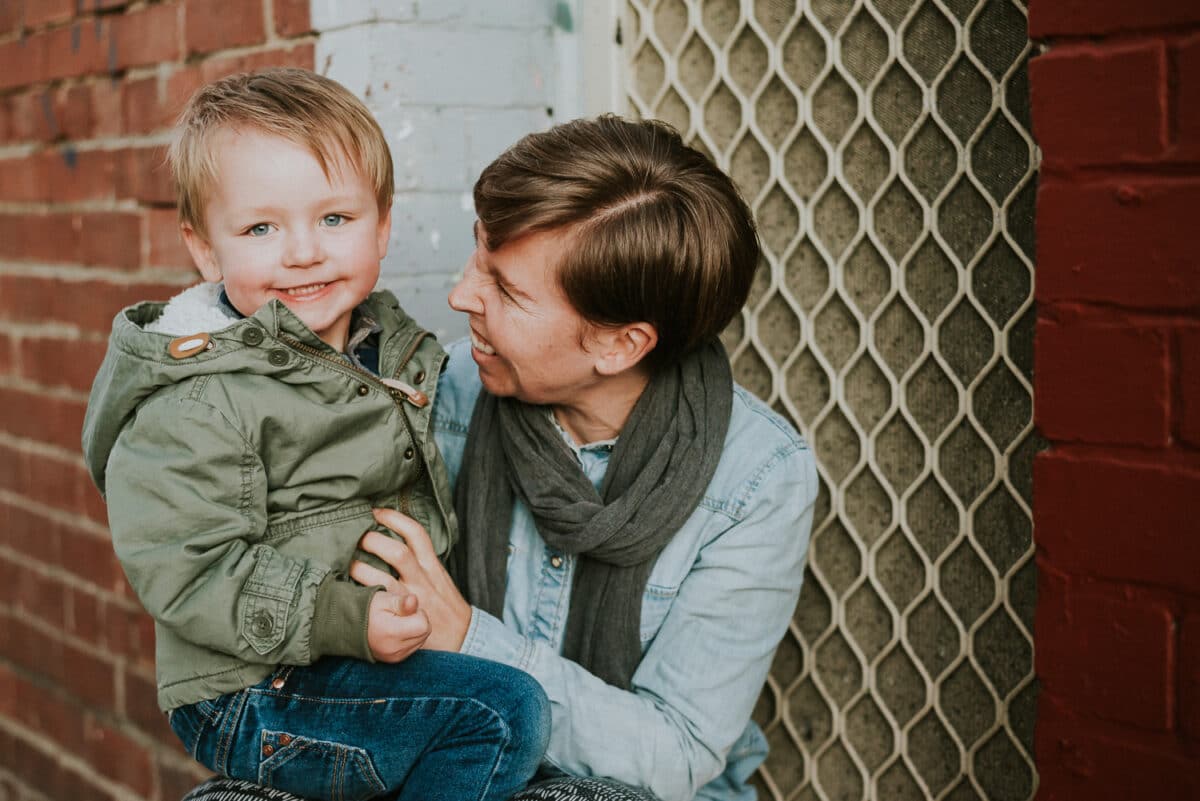
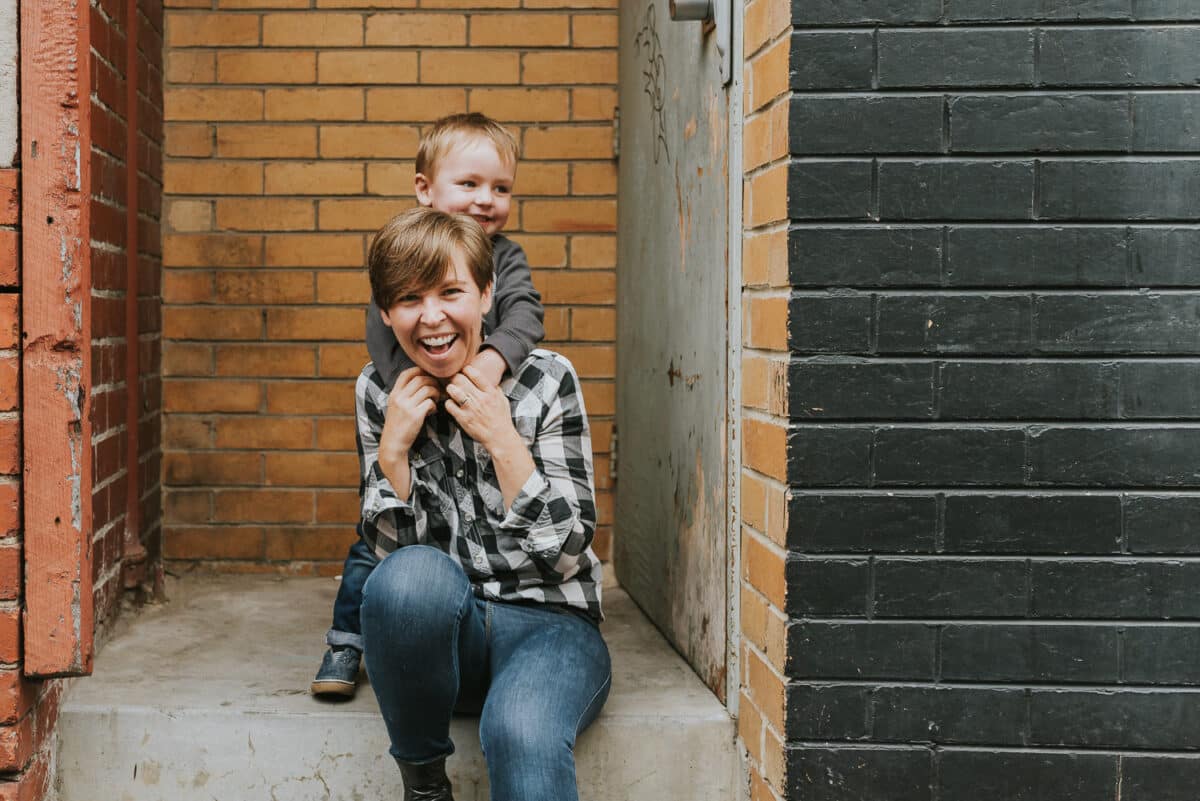

Categories
Related Products
-
The Birth Class
108 reviews$249.00The empowering online childbirth education program that will help you confidently prepare for birth.
Join the conversation
Sign up to get the latest updates, freebies, podcast releases straight into your inbox
@AustralianBirthStories
Follow along with us
@AustralianBirthStories
Follow along with us
@AustralianBirthStories
Follow along with us
@AustralianBirthStories
Follow along with us
@AustralianBirthStories
Follow along with us
@AustralianBirthStories
Follow along with us
@AustralianBirthStories
Follow along with us
@AustralianBirthStories
Follow along with us
@AustralianBirthStories
Follow along with us
@AustralianBirthStories
Follow along with us
@AustralianBirthStories
Follow along with us
@AustralianBirthStories
Follow along with us
